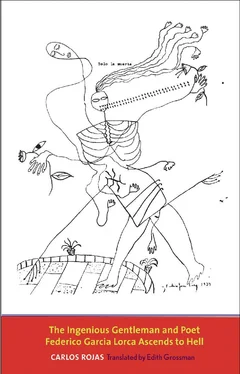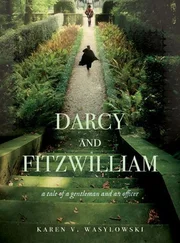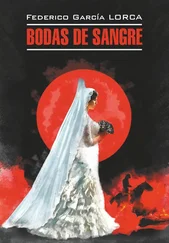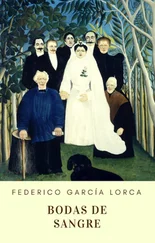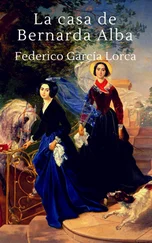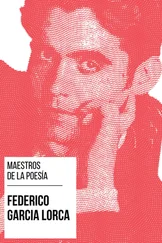“What does all this mean?” he asked, more impatient now than disconcerted.
“This means absolutely nothing, because life has no meaning. It’s only what happened a long time ago. The result of one of my hastiest and smartest decisions. Listen for a moment and you’ll hear my reasons.”
“Rafael,” he said to Martínez Nadal on the stage, “a premonition made me see my destiny if I went to Granada. In a few days there would be or will be a military insurgency. They’ll believe they’re carrying out a coup to avoid an attempt at revolution. But they’ll precipitate the revolution and war that will fill the fields and streets of this country with corpses. In Granada the insurgents would win and hunt me down like a wild boar, not for what I did, since I haven’t done anything, but for being who I am. To escape their fury I would have to hide in the house of some Falangista friends. But this man we saw on the train, the one with the jaws of a mule, would come there to arrest me. Then, without a trial, they’d shoot me in the back, calling me a queer.” Then the voice, broken, on the verge of a lament and perhaps not very far from weeping, seemed to become calm. “Yes, this would be my fate if I’d gone to Granada now,” it resumed dispassionately, as if stating universal laws known to everyone.
Once again Martínez Nadal seemed to have forgotten his irritation in order to observe him with an absorbed expression. “I’m the one who advised you to stay in Madrid if your panic is so great.” Deep inside, and in a certain sense in spite of himself, Martínez Nadal felt convinced that everything he’d just said would have occurred inevitably if he’d left on the Andalucía express. “Here at least you’ll be out of danger,” he mumbled to escape his own thoughts. “We won’t be out of danger anywhere. But at least here I don’t know my fate. In Granada I know it too well to forget it.” “In short, God’s will be done, as you’ve said so many times. All right, let’s go. We’ll take a taxi and I’ll ride with you to your house.” “No, not to my house, no! I beg you. Even now I’m very, very afraid. Rafael, couldn’t I hide in your moth-er’s house, with my suitcase and my play The Public , a work so absurd that only God knows whether we’re all characters in it?”
“This never happened!” he exclaimed in agitation, pounding the arm of his seat, for all of it seemed a mockery of his tragedy, as personal and untransferable as his own existence or voice, which no one could live or speak for him.
“How could it not have happened if I’m here now! If I’m dreaming you whoever you may be! Look at the stage and don’t be insolent.”
Another of those transitions, still invisible to the eyes of the dead, occurred and changed the scene. The sky was a concerted howl of sirens and a latticed brilliance of searchlights. In the distance, an increasingly remote Madrid blazed and trembled beneath the bombs. He was in a bus that seemed to be traveling on the Valencia highway. The almost full moon lit the road like a parody of those medieval tales where the Milky Way led pilgrims toward the west. He woke after a brief sleep to which he had surrendered out of anxiety more than fatigue. The vehicle advanced hesitantly, its headlights turned off, past endless fields. (“Rafael, these streets and the fields around Madrid will fill with the dead, covered in their own blood. This city will be shelled and bombed until many of its neighborhoods crumble into ruins.”) By the light of the moon he recognized Don Antonio Machado, sitting next to him with bowed head, his hands on his knees. With his mind still befuddled and half awake, he thought and said to himself that this sick and aged man, for whom he never felt greater admiration and who, in turn, despised everything he had written, was the greatest Spanish-language poet of the last century, as he himself was of the present. He was certain the old man’s poems and his own would survive the ideas and aberrations of the men bombing the city, the men defending it, and perhaps Madrid itself in another time. He repeated in the deepest part of his being that history did not exist, because it almost always was reduced to its own suicide, and only art and literature biologically justified the presence of a people on earth. Then he found himself obliged to admit that as a reader of his own work, and of Machado’s verses, it all left him indifferent, and he hoped only to survive the unspeakable madness of a murderous war.
Looking around the bus flooded with moonlight, he recognized the poet’s entire family. His mother, a tiny, wrinkled old woman who seemed a centenarian or halted at some imprecise point between a century of life and a useless immortality. Two of his brothers, his sisters-in-law, and his nieces. Ten or twelve souls, frightened and numb, like a tribe at the dawn of the world, fleeing the last monsters they would soon fight for the earth, or perhaps pursued by the ghosts of forebears who lived and died without ever having been completely human. On other seats, with their wives and household goods, he saw Ramón Menéndez Pidal, director of the Academy of the Language, with his squared beard; José María Sacristán, another director, but this time of the asylum at Ciempozuelos; Dr. Arturo Duperier, president of the Spanish Society for Physics and Chemistry, for whom each year the press predicted a Nobel Prize; Isidro Sánchez Covisa, of the Academy of Medicine; the poet and painter José Moreno Villa, who drank pitchers of beer in a single, indifferent swallow, and many others half hidden in the silent semidarkness. When his mind cleared he remembered that all of them were part of an expedition of intellectuals, privileged brains, as old Valle Inclán might have said ironically if he hadn’t had the good taste to die shortly before so great and preposterous a tragedy, whom the Alliance of Antifascist Intellectuals evacuated from Madrid to Valencia to keep them out of danger in the ambiguous name of a doubtful posterity. At that precise moment he felt Machado’s hand, a palm too hard and firm for so sick a man, resting on one of his knees as if looking for a place to lean on. “Do you remember the first time we saw each other?” he asked in a quiet voice. He pretended to have forgotten in order to please the old man and not tangle the threads of those memories he was weaving laboriously at the back of his narrow, half-closed eyes behind his glasses. “I’m not really sure, Don Antonio. I think I was still a boy … ” “Exactly, you were a boy and were going to school in your village. I happened to visit it with an inspector for elementary education whose name I never found out. I was surprised by your eyes, too sad for a boy your age. I asked what you wanted to be in this life and you replied in a way that was oblique but very clear: ‘I like poetry and music.’”
“It’s absolutely true!” he exclaimed, unable to contain himself, but he did refrain from grasping the clothing or arm of the apparition, the virtual image of the man they kept him from being if he had lived.
“Of course it’s true! It all is except for you, you’re my dream. Don’t raise your voice or wake the dead who’ve been acquitted! How many times will I have to reprimand you for that? And don’t wake me up either, though I’m alive and haven’t been tried. Look at the stage again.”
The landscape was different and the bus had changed into an ambulance. Now they were crowded together: Don Antonio Machado, his mother, smiling and mummified in a no-man’s land between the world and eternity, his brother José, his sister-in-law Matea, and himself. Machado was thinner and older, almost as ancient and fleshless as his own mother. From a green thermos that a little while before he had held against his chest, he was pouring them coffee into Catalan bowls. Another city lay behind them, this time Barcelona, also being gutted by bombs. They were traveling on a highway that was covered with an exodus of cars, carriages, trucks, horses, wheelbarrows, other ambulances, soldiers, deserters, men, women, the wounded, children, beneath a quartz winter dawn. “I don’t know how long it’s been since I’ve had coffee so early,” Machado said to him. “In any event, this coffee must be made of peanuts or who knows what it’s made of. Whatever it is, how courteous the Catalans are, as Cervantes already testified at moments of bitter humor, though his critics still haven’t noticed that aspect of his parody. The coffee we drank at night in Madrid probably wasn’t pure either. Do you remember when we left Madrid? The city seemed about to fall at any moment, but ironically, it’s still resisting and now we’re about to lose Barcelona, the aforementioned Cervantean fountain of good breeding, which I suppose will welcome the Fascists with open arms. What was I saying? Recently, in no time at all, my mind wanders.” “You were speaking about the night we left Madrid,” he replied, warming his hands on the sides of the bowl. “That’s right! They evacuated us in that bus for privileged brains, as you repeated, quoting poor Valle Inclán. Save the intellectuals and afterward, in due course, pregnant women, the old, and the mentally retarded. Do you remember those nights in the Madrid cafes? Don’t you think we did harm to Valle Inclán by telling so many stories about him and enlarging his legend beyond the conceivable?” He didn’t reply because he seemed to sense that the dying man wouldn’t have listened to him. “At least now everything will be clear for the historians, the strategists, and the foreign diplomats. Before you know it Barcelona will fall and from the point of view of history, which is what we learned to call destiny from the Greeks, we’ll have lost the war. Humanly speaking, I’m not so sure. Perhaps we’ve won it, though the time hasn’t come to be aware of that.”
Читать дальше
